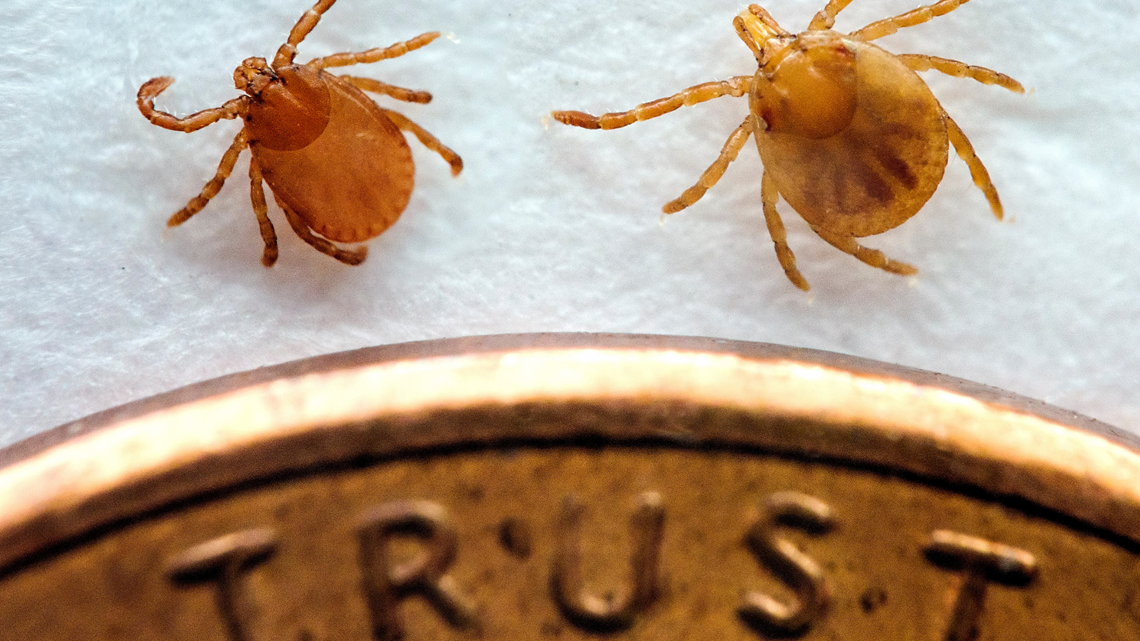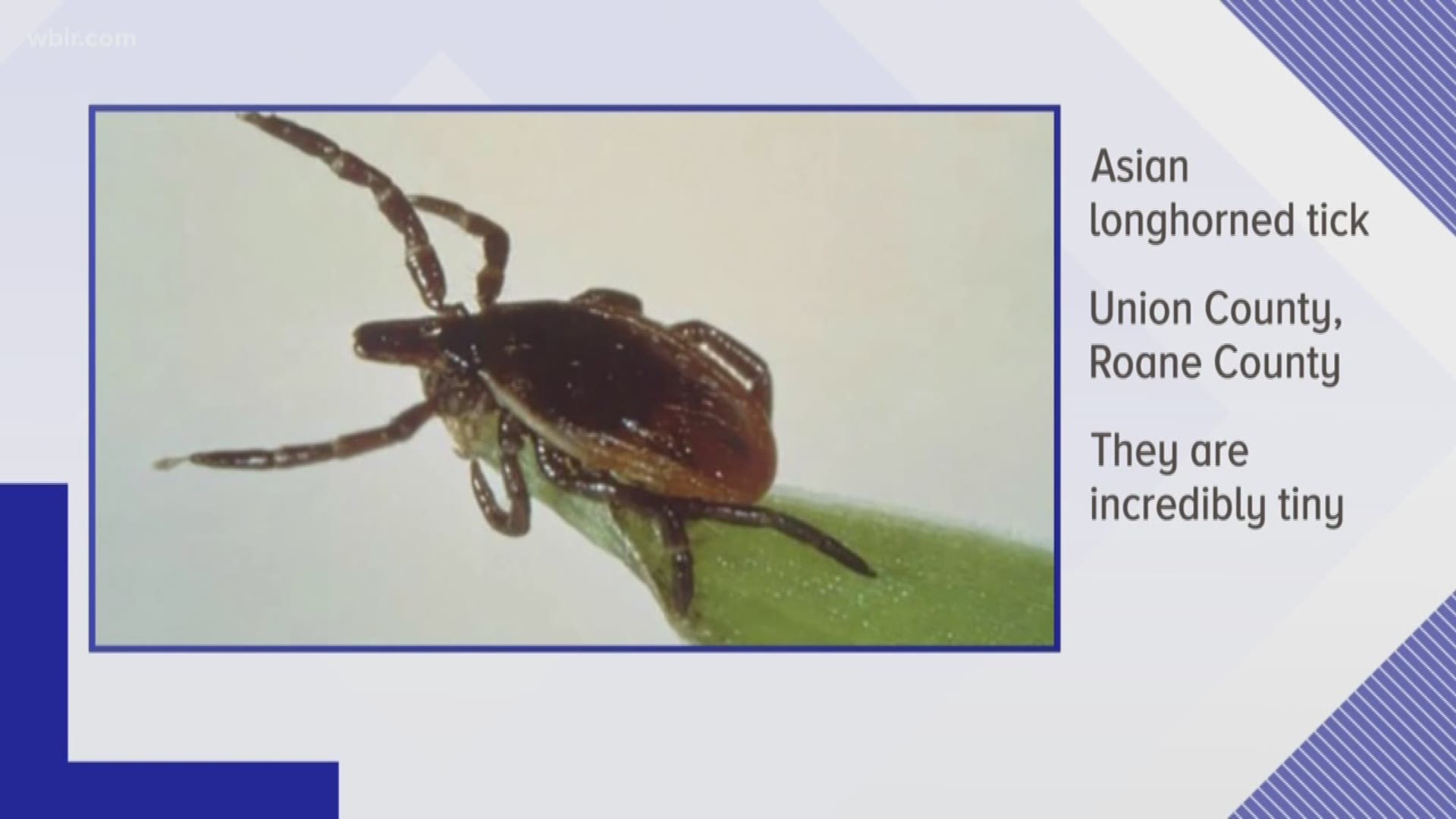State and Federal agriculture leaders say a species of invasive ticks has made its way to East Tennessee.
According to the TN Dept. of Agriculture, the Asian longhorned tick has spread to 11 states.
Two of the ticks were recently found on a dog in Union County, and five were found on a cow in Roane County.
In the U.S., the tick has been found on 17 different mammal species.
“Tennessee has a relatively large amount and variety of ticks,” Dr. R.T. Trout Fryxell, Associate Professor of Medical and Veterinary Entomology for UTIA, said. “It is important to be diligent and keep an eye out for all ticks because many varieties can transmit pathogens or cause painful bites.”
The ticks are incredibly tiny, only a little larger than the lettering on a penny.


Officials say there is no evidence that the tick has transmitted any pathogens to humans or animals in the U.S. However, the ticks are known to transmit livestock and human diseases in other countries including rickettsiosis, anaplasmosis, babesiosis, and several viruses.
The ticks are native to China, Japan, Russia and Korea. It's still unknown how they got to the U.S., but officials say they may have traveled over with pets, livestock, or humans.
If your animals are bitten by a tick, Dr. Trout Fryxell suggests putting the tick in a ziplock bag, writing down the date and where the tick was most likely encountered, and storing it in a freezer. They say to bring the tick to vet with you if your animals show any symptoms of a tick-borne disease.
Tips to prevent tick bites in animals and livestock include:
- Coordinate with your veterinarian to determine appropriate pest prevention for pets and livestock.
- Check pets and livestock for ticks frequently.
- Remove any ticks by pulling from the attachment site of the tick bite with tweezers.
- Monitor your pets and livestock for any changes in health.

